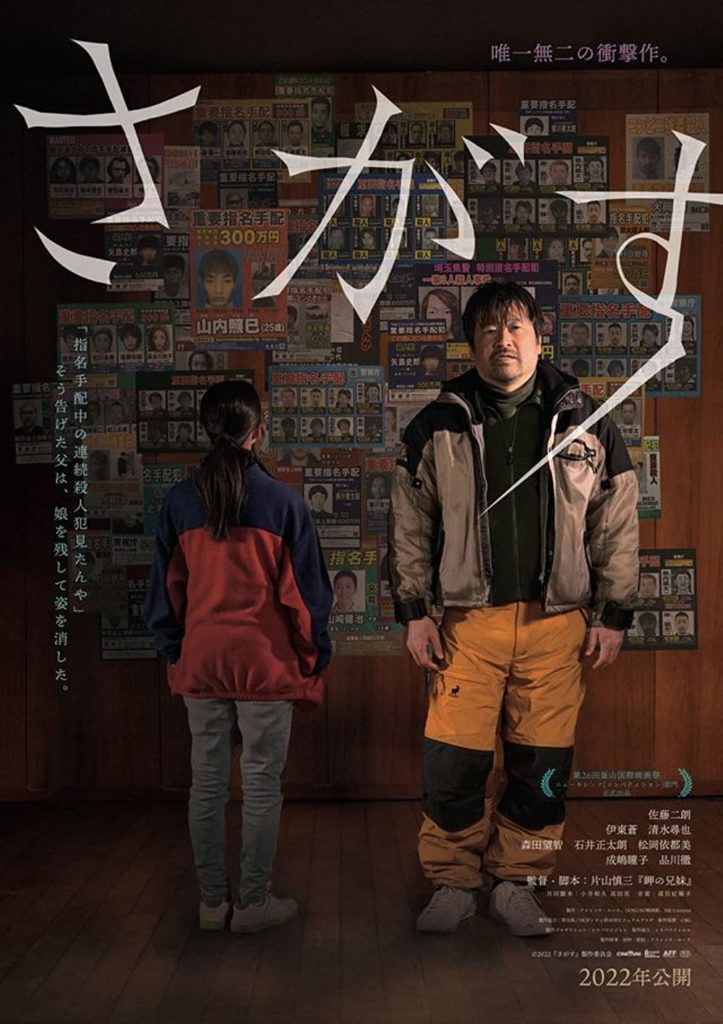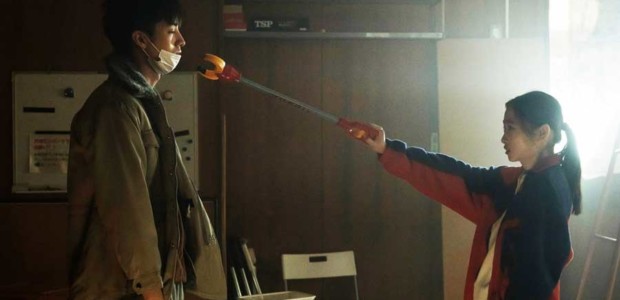
Bong Joon-Ho’s MEMORIES OF MURDER is a seminal entry in not only his career, but in Korean cinema in general. Blending the moods of multiple genres and themes, it transcended the usual serial killer narrative and brought complexity and even uncomfortable empathy to what can tend to be a fairly by-the-books genre. Director Shinzo Katayama, Bong’s assistant director on the project, has now absolutely done the same for Japanese cinema with his own genre-bending crime thriller, MISSING (‘SAGASU‘ in Japan).
Switching perspectives and moods almost as effortlessly as a dance ensemble switches styles, MISSING follows the tragedy befallen family of Satoshi (Jirô Satô) and Kaede (Aoi Itô) Harada, grappling with poverty and severe depression in the wake of wife and mother Kimiko’s (Tôko Narushima) suicide post diagnosis with ALS. Desperate and losing purpose in life, Satoshi becomes obsessed with collecting the substantial reward money for catching a violent serial killer (Hiroya Shimizu). When he suddenly vanishes without a trace, it’s up to his daughter to follow his footsteps and track him down before he too falls victim to the killer lurking in the shadows, risking both her safety and her remaining family ties as she uncovers far more than she bargained for.

MISSING walks a fine line in its pacing with effortless ease, neither slow enough to feel stretched thin, nor blistering enough that each twist and turn doesn’t get the room to breathe they deserve. Vacillating between family drama and serial killer thriller, it takes the hallmarks of both without falling into the cliches of either, making for an intense and emotional ride. The shifts in point of view from father, to daughter, to killer and back are handled equally well with each getting enough time to weave you into their own strands of the wider web of the narrative.
The relationship between Satoshi and Kaede is brilliantly written. Each is the child as well as the adult in various aspects of their lives, with Kaede ostensibly moving into the head of the house role as her father collapses in on himself after Kimiko’s death. On the other hand, Satoshi hides aspects of his life and also puts himself in calculated danger all for the well-being and safety of his daughter, even if she may never know the full extent of his care behind the scenes. As each stumbles and each lifts the other up, their responsibilities and roles in their lives go back and forth like the ping-pong games they once enjoyed so much as a family in the past.
Shimizu in particular does an amazing turn playing a killer who makes you feel disgusted in both his actions and, to an extent, yourself as a voyeur in his sexually sadistic behavior, but also conflicted in his overall rationale and descent into death and darkness after years of watching terminal patients at his hospital suffer what he sees as painful forcibly extended lives: the families of the patients paying thousands for them to live while the patients themselves would rather be let go and freed from their suffering. His quiet manipulation and nonchalant attitude towards every aspect of his life also brings a horrible confusion to the mix for both us and the Harada’s. Is anything he’s saying true? Have we been taken in by him in turn? Do we, for a dark moment, almost understand and empathize with him?
That, in essence, is the lynchpin that holds together the threads of MISSING. What do we miss in ourselves? In others? In our own floundering in the oceans of our own pain and problems, can we be led astray by a monster that promises us an island of calm as they plan to drag us into the abyss? It’s a thesis common in the work of Katayama’s mentor, and now carried on in brilliant form that leaves us with these thoughts also bouncing back and forth in our own heads: an invisible ball echoing in our skulls forever.
Tags: Aoi Ito, Crime, Fantastic Fest 2022, Hiroya Shimizu, Jiro Sato, Serial Killers, Shinzo Katayama, Thrillers, Tôko Narushima



No Comments